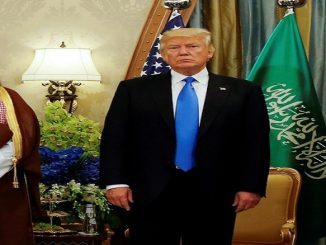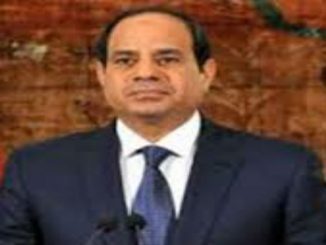
An official in the Sudanese government said that the Ministry of Finance and Economic Planning has recently issued a decision to ban the entry of the Egyptian ceramic products until the full payment of the customs duties. The Sudanese decision led to a crisis between the Egyptian exporters and the Sudanese government, especially with trucks loaded with these products, stuck on the land border crossing between the two countries.
The Sudanese government had agreed in 2010 on implementing the Arab Trade Agreement and the COMESA on the Egyptian goods exported to al-Khartoum, which means 80% reduction of the tariff adopted in Sudan on these goods.
Four government officials concerned with economic and financial files in Sudan, refused to respond to any questions about the reasons behind the ban on Egyptian ceramics.
In response, a number of ceramic manufacturers and dealers in Egypt have raised a memorandum to Prime Minister Sherif Ismail calling the Egyptian authorities to exert pressure on the Sudanese government to reconsider its ban decision.
In the same context, the ceramic industry Division of the Federation of Industries in Egypt said that they filed an urgent complaint to the Arab League and the COMESA Secretary General and head of the COMESA business Council, to compel Sudan to apply the trade agreements with the Egyptian side. The head of the Division, Sherif Afifi said, “The private sector in both Sudan and Egypt are affected by the decision, particularly as the Sudanese customs position is not justified at all.” Afifi called in a press statement for an official intervention to support the future of Egyptian exports.
In contrast, the Secretary-General of the COMESA in the Sudanese Ministry of Commerce, Nader Reeh, described the decision as the state’s right. He also said that, “it is the government’s right to protect its local product if it perceives another product dumping its market and threatening its national product.”
However, the Sudanese economic observer, Haitham Fathi, believes that the government’s decision is a “mistake” as being contrary to the provisions of the COMESA agreement which states the exemption of ceramics from customs duties.
According to private sources, the Sudan ceramic production does not cover more than 14% of the actual needs. The ceramics imports from Egypt cover about 45% of the Sudan’s market needs, and the rest of the imported quantities comes from China. The sources related the weakness of local production in Sudanese factories to gas shortages and the lack of local protection except by restrictions imposed by customs duties and standards policies.
Many experts believe that banning ceramic imports from Egypt harms the Egyptian factories, especially after they have found a way to market their surplus production in Sudan through the COMESA agreement, and to other African countries.
Ceramic traders in Sudan predicted the rising in ceramic prices by 30%.The price of ceramic per square meter is about 75 Sudanese pounds (US $ 11.7). As a result of the high cost of production in Sudan, despite the increased demand, the UAE company, “Raas al-Kheima” quitted Sudan, justifying the move by “avoiding further losses.”
Sudan and Egypt are member states in the Common Market for Eastern and Southern Africa (COMESA) formed in December 1994 to replace the former Preferential Trade Area (PTA) which had existed from the earlier days of 1981. COMESA (as defined by its Treaty) was established as an organization of free independent sovereign states which have agreed to co-operate in developing their natural and human resources for the good of all their people’ and as such it has a wide-ranging series of objectives which necessarily include in its priorities the promotion of peace and security in the region. However, due to COMESA’s economic history and background, its main focus is on the formation of a large economic and trading unit that is capable of overcoming some of the barriers that are faced by individual states.
The Egyptian-Sudanese relations started to deteriorate when the Halai’b and Shalateen dispute rose once again on the surface after al-Sisi’s decision to give away Tiran and Sanafir islands to Saudi Arabia. Sudan started taking diplomatic measures to regain its right over the disputed triangle. Earlier this month, Sudan Tribune reported that Sudan’s permanent envoy to the United Nations Omer Dahab said his country refused to withdraw the complaint it presented to the UN Security Council (UNSC) over the disputed Halai’b triangle with Egypt. According to Al-Sudani newspaper, Dahab said that Halai’b file at the UNSC is under consideration but he didn’t elaborate on the next move that his country is intending to make. Moreover, Hassan Hamid Hassan -Chargé d’affaires at the Sudanese mission to the UN- has sent a letter on May 23 to the president of the UNSC and Egypt’s permanent envoy to the UN Amro Abu Al-Atta protesting against the continued measures to “Egyptianize” the disputed triangle. In the same path, Sudan’s Foreign Minister Ibrahim Ghandour sent a letter to his Egyptian counterpart Sameh Shoukry, discussing the “continued moves and measures by the Egyptian government to Egyptianize Halai’b triangle”.
Also, the Sudanese government expressed its desire to circulate and consider the letter and its attachment as a UNSC document. The letter said:
“Within the context of the ongoing contacts between us [Sudan and Egypt] which aim to promote and enhance ties between our two friendly nations, I’d like to express to you our deep concern over the accelerated Egyptian measures to Egyptianize the triangle of Halai’b-Shalateen-Abu Ramad … We totally reject those measures including laying the foundation for premises belonging to the Ministry of Justice as well as building a number of facilities and services projects including water desalination plants, solar projects, power grid, and religious schools and institutes,” read the letter.
“I‘d like to repeat that we categorically reject the establishment of the Egyptian installations on the Sudanese territory in Halai’b – Shalateen – Abu Ramad and we also repeat our call for holding bilateral talks or to agree to [refer the case] to arbitration for a better future for the two friendly peoples,” it added.
Since 1958, Egypt and Sudan have disputed over the Halai’b triangle on the Red Sea. The area has been under Cairo’s full military control since the mid-1990s. Egypt has neglected Sudan’s repeated calls for bilateral talks or referring the dispute to international arbitration.



